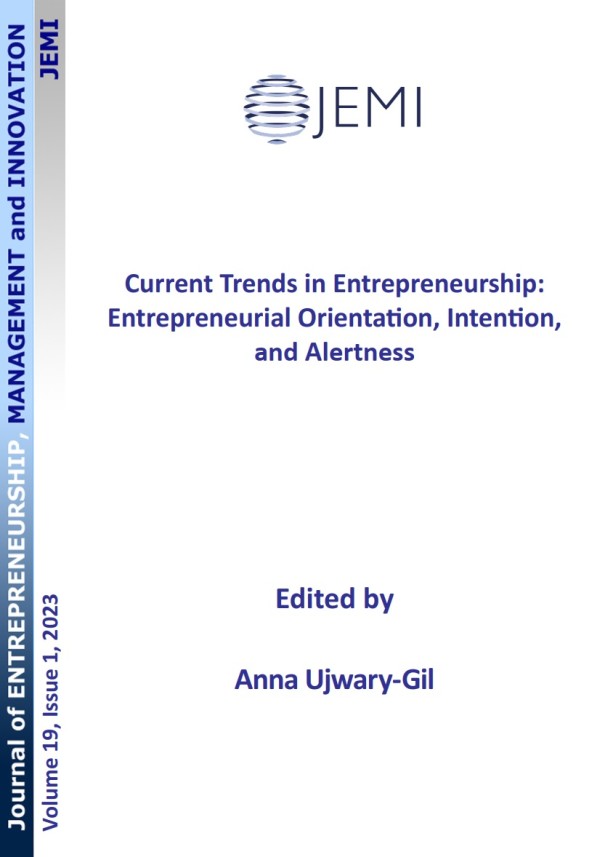Simona-Andreea Apostu, Ph.D Lecturer, Department of Statistics and Econometrics, Bucharest University of Economic Studies, 010552 Bucharest, Romania; Scientific Researcher, Institute of National Economy, 050711 Bucharest, Romania, e-mail: This email address is being protected from spambots. You need JavaScript enabled to view it. 
Iza Gigauri, Ph.D., Associate Professor, School of Business, Computing and Social Sciences, St. Andrew the First-Called Georgian University, 0179 Tbilisi, Georgia, e-mail: This email address is being protected from spambots. You need JavaScript enabled to view it. 
Abstract
PURPOSE: Entrepreneurship seen as an engine for economic development is especially desirable for emerging countries to support rapid growth. Moreover, entrepreneurs can support social transformation in favor of more sustainable products and services. Sustainable orientation of entrepreneurship contributes to sustainable development goals and prevents environmental deprivation. However, the sustainable development agenda can also influence entrepreneurship. METHODOLOGY: The conducted bibliometric analysis confirmed the growing interest among scholars in the correlation of entrepreneurship to sustainability in the last years. Furthermore, panel regression (static model) was used to explore the variables on entrepreneurship influencing the sustainable development goal (SDG) index in emerging countries, and Levin, Lin and Chu (LLC), W-Stat – IPS, ADF-Fisher Chi-Square, and PP-Fisher Chi-Square tests were applied to analyze the variables stationarity. In order to examine the existence of structural breaks, the robustness was checked on single cross-section units and on the whole panel dataset. In addition, the Hausmann test was used to select between random and fixed effects, and heteroskedasticity of residues, autocorrelation of residues and dependence of residues between the panels were conducted. Data was analyzed through Eviews 13. FINDINGS: This paper investigates the relationship between sustainability and entrepreneurship in emerging countries. It discusses the impact of sustainable development on entrepreneurship and the influence of entrepreneurship on sustainable development. IMPLICATIONS: The study results can be used by governments and policymakers to plan their strategies and policies concerning entrepreneurship and implementation of sustainable development goals. They should promote entrepreneurial activity and control the negative environmental impact of enterprises simultaneously. ORIGINALITY AND VALUE: The research addresses the gap in the literature concerning the relationship between sustainable development and sustainable entrepreneurship. The paper examines the reciprocal relationship between sustainable development and entrepreneurship with an emphasis on emerging countries.
Keywords: entrepreneurship, sustainability, sustainable development, sustainable entrepreneurship, emerging countries, entrepreneurs






